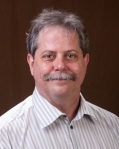Ogden News
WKU geoscientist coordinating U.N. water workshop in Turkey
- Thursday, May 29th, 2014
WKU Distinguished Professor of Hydrogeology Chris Groves is in Ankara, Turkey, this week, where he is coordinating a water resources meeting under the auspices of the United Nations’ International Geoscience Program.
Dr. Groves developed the idea for the Workshop on Sharing Experiences on Karst Water Resources in the Middle East in his role as co-leader of the International Geoscience Program’s Project IGCP/SIDA 598, Environmental Change and Sustainability in Karst Systems. Funding for the project has been provided by the United Nations Educational, Scientific and Cultural Organization (UNESCO) along with the Swedish International Development Agency (SIDA). This year the project has a mandate to enhance capacity building in Africa and the Middle East.
Participants in the workshop represent 11 countries, including Iran, Lebanon, Jordan, Morocco, Palestine, Algeria and Turkey.
“By making presentations on karst water resource challenges in the various countries, participants are developing synergy and hopefully identifying ideas for potential future cooperation,” said Michel Bakalowicz of France’s Montpellier University. Professor Bakalowicz has worked extensively in the Middle East and was instrumental in identifying key scientists working in the region to participate.
While some challenges are similar in karst regions around the world, some discussed here were specific to the region. “After hearing Jordanian hydrogeologist Mohammad Al Hyari describe a karst spring in Jordan contaminated with waste from olive oil production,” Dr. Groves said, “discussion revealed that in fact this turns out to be pretty common problem around the Mediterranean countries.”
Participants were astounded to learn that in some dry countries high water demand produce such as oranges and tomatoes are grown with costly irrigation and then shipped to water-rich countries in Europe, essentially equivalent to exporting “virtual water” from parched desert regions. In water-starved Morocco, water tables in the country are dropping by more than five feet per year when this happens.
Swiss scientist Myriam Saadé-Sbeih also talked about how her team’s hydrologic fieldwork in Syria has become too dangerous to complete because of the war there.
WKU geoscience graduate student Laura Osterhoudt, a May 2014 graduate from Louisville, was responsible for helping with administrative tasks organizing the workshop and is in Turkey participating in the event with a presentation on innovative methods for monitoring karst water resources.
The event is being hosted by the Hacettepe University’s International Research and Application Center for Karst Water Resources, led by renowned Turkish karst scientist Professor Mehmet Ekmekçi.
Contact: Geography & Geology, (270) 745-4555.
Some of the links on this page may require additional software to view.


